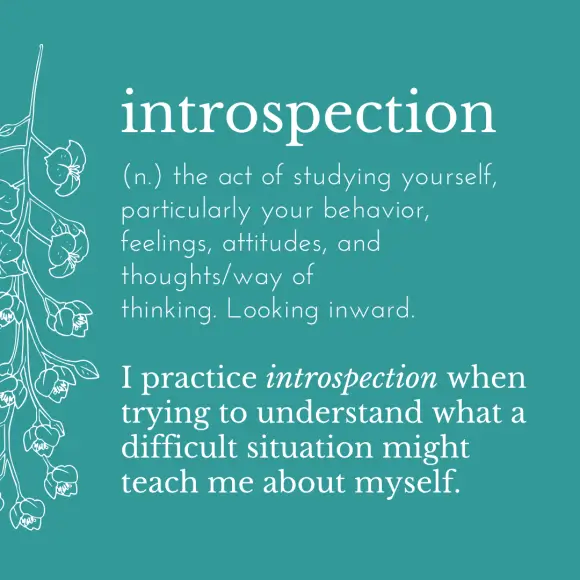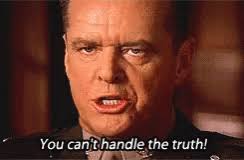In the last couple of weeks I have received a fair amount of explicit or implicit criticisms. If I recall right they boil down to six things:
- Arrogance in how I express myself
- Seeing the world in black and white, maybe part of the arrogance problem
- Relying too much on experts to guide my opinions
- Being way too alarmist about various authoritarian threats to American democracy, the rule of law, and civil liberties from Trump and the MAGA movement (kleptocratic autocracy, plutocracy and Christian theocracy)
- Being too biased or unreasonable by being trapped in partisan identity politics
- Being way too partisan in favor of extreme liberalism, although the labels socialist or communist have not yet popped up
Those criticisms are sincere and come from people of good will, so I take them seriously. In short, they blow me away. I’ve apparently been seriously blind to my own flaws. I thought I was basically the opposite of criticisms #1 and #2. Regarding #4, I thought that I was very careful to lay out a lot of evidence to support my deep fears about America turning into some form of a bigoted, authoritarian kleptocracy. Criticism #5 baffles me because I don’t know what identity I am trapped in.
However, there is both truth and misunderstanding behind criticism #6. I am very partisan from in favor of pragmatic rationalism and its core moral values. But pragmatic rationalism is not liberalism or politically left. It is something else. I thought it was mostly centrist. Assuming I was an exemplar of pragmatic rationalism and being usually in accord with majority public opinion about most things with poll data, centrism felt like a reasonable label. However,
Perplexity convinced me I am not a centrist. Instead, Perplexity gave what I believe is a more accurate description of my brand of politics:
“Pragmatic rationalism, as presented by Germaine, aims to transcend conventional political labels and ideologies. It focuses on using cognitive biology and social behavior insights to counteract biases and promote more rational decision-making in politics and policy.
While Germaine may touch on issues that align with various points on the political spectrum, his overall framework appears to be an attempt to create a meta-ideology that critiques and aims to improve upon traditional political thinking.
Given this information, it would be most accurate to describe Germaine’s political stance as: Unconventional/Alternative: Rather than fitting into established categories like far left, left, or centrist, Germaine’s pragmatic rationalism represents an attempt to forge a new approach to politics based on cognitive science and rational analysis.”
In my opinion, that nails it. That is me, and I am partisan about it.
Q: What other criticisms reasonably apply to Germaine and/or pragmatic rationalism?
_______________________________________________________________________
_______________________________________________________________________
Personal opinion vs. expert opinion
This post raises the question, as one critic put it about criticism #3, “why debate if it comes down to dueling AUTHORITIES to dismiss personal analysis and verification. .... why debate seriously if one cannot produce their own analysis and verification, relying on dueling authorities, dismissing each other as posters...or worse, assigning authority based on partisan and identity bias?”
Accompanying that question was a personally concerning assertion of insult,
“I'll say it again: what if I show extreme investing success vs Suzie Orman or Robert Kiyosaki, being called a clown relative to them. And by the way...that is EXACTLY what some more or less have said in our community .... asserting I’m a clown vs their authorities...this from some posters perceived to be authoritative by many members of this community.”Maybe unreasonable reliance on expert opinion is a big personal blind spot. And I very much I hope I did not call the commenter a clown because it is insulting. If I did, I’m truly sorry.
Rethinking the line of argument that commenter has been asserting here for a long time, I can see how arguing that successful active investing can be a significant source of personal wealth. That seems to be a solid truth. What I have no feeling for at all is (1) how one can reliably do that (the commenter makes it sound fairly easy), and (2) how to translate personal financial success into a political force that would stand in defense of morally vastly superior pluralist, secular democracy** to some form of morally rotted corrupt authoritarianism.
** Yes, democracy over authoritarianism evinces solid partisanship and my moral logic. I am a partisan.
For me, there is a big disconnect between the goal of pragmatic rationalism, namely counteracting biases and promoting more rational decision-making in politics and policy. How to bridge that gap? Not all successful stock market investors will be pro-democracy. Some will be pro-authoritarian. What glue is there to tie financial success with democracy?
Hence my deep confusion about what role successful investing would have as a political strategy or mindset. But I do often adopt the opinions of what I believe are well-meaning, honest experts in various aspects of politics because I am not an expert. I know that experts are often or usually wrong in their predictions, a situation that is so well documented that I consider it to be a fact, not a debatable truth (
book review 1,
book review 2,
book review 3).
Q1: What am I missing here by not seeing major connections between secular democracy politics and personal success in finance? I think I am missing something, but cannot put a finger on it.
Q2: How often should individual analysis and opinion trump expert analysis opinion, sometimes, usually, all the time, etc.?





